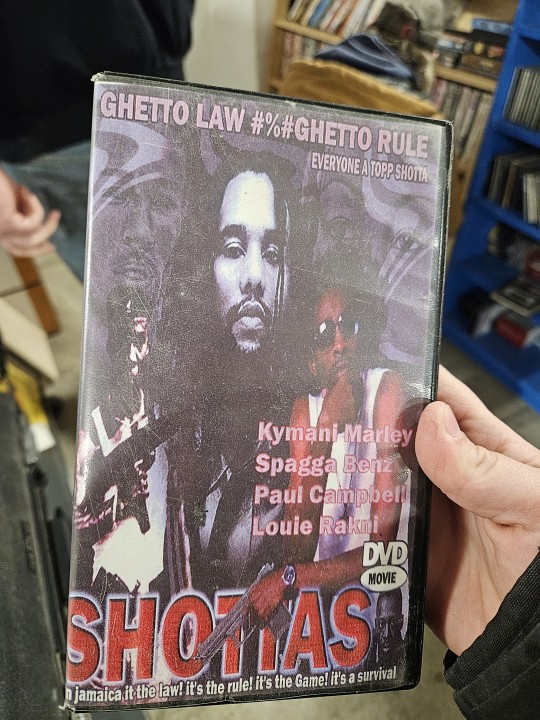#canada tech
Text




Beautifully crafted protection meets the new iPhone 14
Check it out on: www.mydevia.ca
#devia#canada#technology#tech#canada tech#techlove#tech lovers#techlover#gadgets#tech trends 2022#phone#canadatech#cases#apple iphone#iphone cases#iphone 14#protector#protection
0 notes
Text
The federal government will be investing $2.4 billion to accelerate Canada’s artificial intelligence (AI) sector, Prime Minister Justin Trudeau announced Sunday.
The investment will be divided between a number of measures meant to advance job growth in the AI and tech industry and boost businesses’ productivity.
“This announcement is a major investment in our future, in the future of workers, in making sure that every industry, and every generation, has the tools to succeed and prosper in the economy of tomorrow,” Trudeau said in a press release Sunday.
Majority of the funds, $2 billion, will go toward increasing access to computing and technological infrastructure. Another $200 million is being invested into AI start-ups to accelerate the technology in “critical sectors” such as health care, agriculture and manufacturing, the release says.
Additional funds will be put toward helping small and medium-sized businesses incorporate AI, with another $50 million being committed to help train workers whose jobs may be disrupted by the technology.
Continue Reading.
Tagging: @politicsofcanada
304 notes
·
View notes
Text



A very nice, fully working keyboard we got for 25% off, and a twilight box set that weighed a ton and I almost got ($8 is a fair price).
Bibles for Missions, Red Deer, AB.
164 notes
·
View notes
Text

"Computer Revolution in Quebec," Aislin, 1984.
(McCord Stewart Museum)
196 notes
·
View notes
Text
Saturday linkdump, part the sixth

On September 12 at 7pm, I'll be at Toronto's Another Story Bookshop with my new book The Internet Con: How to Seize the Means of Computation.
On September 14, I'm hosting the EFF Awards in San Francisco.

I usually write this blog 5-6 days/week, but every now and again, I take a break, and when I do, I get massive link backlogs of stuff I want to write about, but lack the time to address in depth. When that happens, I turn my Saturday edition into a linkdump. Today, I present the sixth in the series – here's the other five:
https://pluralistic.net/tag/linkdump/
Why was I offline and away from my blog? I went to the dirt rave. Yes, I was one of the 70,000+ people stuck in the mud at this year's Burning Man, and when I emailed my editor at the New York Times to say I might be late on the op-ed I was working on, she asked me to write about what this year's mud crisis meant:
https://www.nytimes.com/2023/09/06/opinion/burning-man-flood-playa-climate-change.html
tl;dr:
Bad weather is normal at Burning Man (it's a feature, not a bug);
Mostly burners leapt to the occasion, which is what people almost always do in disaster situations;
This is the second Burning Man heavy weather year in a row;
The climate emergency is tipping the Black Rock Desert from "extremely challenging" to "impossible";
This isn't the last event, place and tradition that will have to be radically reconsidered in light of the climate emergency;
But now I'm home, in my hammock, with all the laundry done – just in time to leave again. I'm about to head back to my hometown of Toronto for a book launch. The Internet Con, my latest nonfiction (from Verso Books) came out last week, and I'll be appearing at Another Story Bookshop on Tuesday:
https://anotherstory.ca/events/29283
Internet Con is a "Big Tech disassembly manual." It explains how Big Tech got so big (lax anti-monopoly enforcement, which led to regulatory capture, which let Big Tech abuse our privacy, labor rights, and consumer rights), and how we can use interoperability so it's no longer Too Big to Fail, nor Too Big to Jail:
https://www.versobooks.com/products/3035-the-internet-con
You can read a long excerpt from the book in Wired, which lays out some of the shovel-ready legislative, regulatory and technical proposals that are the book's main purpose:
https://www.wired.com/story/the-internet-con-cory-doctorow-book-excerpt/
You can also hear me read the whole introduction and first chapter of the audiobook on my podcast:
https://craphound.com/internetcon/2023/08/01/the-internet-con-how-to-seize-the-means-of-computation-audiobook-outtake/
That comes from the audiobook, a DRM-free, independent edition that I financed, produced and narrated myself. You can get the audiobook everywhere except Audible, Apple Books, and Audiobooks.com, all of which have mandatory DRM policies. You can also get it direct from me:
https://transactions.sendowl.com/products/78992826/DEA0CE12/purchase
The DRM-free ebook is available everywhere ebooks are sold (Kobo, Kindle, Nook, etc), as well as in my own DRM-free ebook store:
https://transactions.sendowl.com/products/78992801/9C4FC2B8/purchase
Verso's books are sold in bookstores around the world; you can support your local bookseller by buying it through Bookshop:
https://bookshop.org/p/books/the-internet-con-how-to-seize-the-means-of-computation-cory-doctorow/18771891?ean=9781804291245
If you'd like a signed copy, there's stock at Book Soup:
https://www.booksoup.com/book/9781804291245
Now, it was inevitable that I would do a book event for Internet Con in Toronto – I've never had a bad event there, and I love my hometown – but the timing of this event was driven by a non-book-related factor. Talking Heads is appearing together at TIFF, to support the re-release of Stop Making Sense, the greatest concert film in human history:
https://pluralistic.net/StopMakingSense
People often ask me what my favorite book is, and I always tell them that you should never trust people who have one favorite book, as it inevitably turns out to be The Bible, The Fountainhead, or Mein Kampf. But while I don't have a favorite book, I have a clear and unambiguous favorite band.
If I was forced to listen to no music other than Talking Heads for the rest of my life, I would be perfectly happy. Ecstatic, even. Throw in David Byrne, Tom Tom Club and Casual Gods and I probably wouldn't even notice anything missing.
There's a running joke among my Burning Man campmates that whenever I'm in charge of the music, I'm just shuffling Talking Heads rarities, and whenever someone puts on anything else, I demand to know which Talking Heads album it came from. Which is all to say: I have tickets for the Talking Heads event at TIFF and I could *not be more excited.*
Continuing on the Canadian theme, one of the annual highlights of Canadian media is the Massey Lectures, a series of public lectures given around the country and rebroadcast on CBC. These are always great, but recent years have been superb – Ron Deibert's 2020 series was unmissable:
https://pluralistic.net/2020/11/10/dark-matter/#citizenlab
This year's Masseys are shaping up to be the GOAT. They're presented by Astra Taylor, an activist rock-and-roller turned documentary filmmaker who is one of the founders of the Debt Collective, fighting for student debt cancellation. Everything Astra does is amazing and her profile on CBC Ideas gives some background on the role that unschooling played in making her the powerful activist she is today:
https://www.cbc.ca/radio/ideas/astra-taylor-interview-2023-massey-lecturer-1.6959320
There's no question that things are messed up right now, but Astra and people like her shine out like beacons of hope. 17 years ago, self-described "democracy nut" Tom Stites gave one of the seminal lectures on the role news media play in democracy:
http://citmedia.org/blog/2006/07/03/guest-posting-is-media-performance-democracys-critical-issue/
17 years later – and from his perch as editor at the essential International Consortium of Investigative Journalists – Stites presents us a long-overdue, extremely pertinent followup: "Building Civic Energy is the Goal, Not Saving Old News Business Models":
https://banyanproject.coop/wp-content/uploads/2023/09/Hope-College-speech-for-Banyan-website-1.pdf
Stites's intervention is extremely timely, because policymakers all over the world have made the mistake of thinking that Big Tech is stealing the news media's content, which is absolutely untrue. It is good, actually, to index news stories and let people discuss, quote from and link to news stories. News you're not allowed to talk about isn't news, it's a secret.
But Big Tech is stealing from news. They're not stealing content – they're stealing money. The Google/Apple duopoly rakes 30% off every subscription payment collected in an app. The Google/Meta duopoly rakes 51% out of every ad-dollar (and maintain that death-grip through creepy, privacy-invading surveillance ads). Meta and Twitter hold social media subscribers hostage, forcing publishers to pay to reach their own subscribers.
We don't want the news to be Big Tech's partners – we need them to be Big Tech's watchdogs. "Link taxes" and other profit-sharing arrangements between the media and tech cut against the civic energy Stites wants to build.
(You can read more about this – along with policy prescriptions for halting Big Tech's rent-extraction from the news – in "Saving the News From Big Tech," my EFF white-paper:)
https://www.eff.org/deeplinks/2023/04/saving-news-big-tech
If your spirits are lifted by stories of principled activists achieving important – and improbable – victories, you could do worse than to attend the EFF Awards on in San Francisco Sept 14 (I'm the emcee). This year, we're honoring Alexandra Elbakyan for her founding of Sci-Hub, the Library Freedom Project and the Signal Foundation:
https://www.eff.org/awards/effawards/2023
In more activist news: Mozilla produced a startling and astoundingly good – if demoralizing – report on the state of digital privacy and security in the automotive sector:
https://foundation.mozilla.org/en/privacynotincluded/articles/its-official-cars-are-the-worst-product-category-we-have-ever-reviewed-for-privacy/
Entitled, "It’s Official: Cars Are the Worst Product Category We Have Ever Reviewed for Privacy," the report reveals just how absolutely terrible the automotive sector is when it comes to privacy practices, collecting (and selling) (and giving away) information about your sex life, your geneology, your genetic characteristics, and your smell (no, seriously).
Their recommendations for which new car you should buy boil down to "don't buy a new car." I have been urging consumer research groups to release a report like this for a decade. There are whole categories of gadgets – like, say, "smart speakers" – that are unsafe at any speed. At a certain point, reviewers need to have the guts to say that every manufacturer in an entire sector is a dumpster fire and they should all be dragged in front of a firing squad – or at least a Congressional committee.
Cars, after all, are nightmares of privacy invasion and rent-extraction, the source of autoenshittification on a massive scale, a mobile form of technofeudalism:
https://pluralistic.net/2023/07/24/rent-to-pwn/#kitt-is-a-demon
The fact that cars score so badly on privacy is especially ironic given the campaign Big Car waged against the 2020 Massachusetts Right to Repair ballot initiative, in which car manufacturers held themselves out as the defenders of driver privacy from unscrupulous third parties who couldn't be trusted to handle the vast troves of data your car collects with every hour that God sends:
https://pluralistic.net/2020/09/03/rip-david-graeber/#rolling-surveillance-platforms
This is a familiar refrain: monopolists often claim that any check on their absolute authority over their users will expose those users to privacy risks. Apple has run a global ad-campaign claiming this, and while Apple does prevent Facebook from spying on iPhone owners, they also secretly spy on those customers in exactly the same way that Facebook used to, and lie about it:
https://pluralistic.net/2022/11/14/luxury-surveillance/#liar-liar
It turns out that giant companies just aren't good proxies for their customers' interests, and that the power they amass through monopolization shouldn't be counted on as a source of user safety. Monopolists won't reliably defend user privacy – that job belongs to democratically accountable regulators. That's an argument I developed in detail with Bennett Cyphers in our EFF white-paper "Privacy Without Monopoly":
https://www.eff.org/wp/interoperability-and-privacy
That is, rather than getting privacy by "voting with your wallet," you need to get it by voting with your ballot. "The market" is an election that you vote in with dollars, which means that the people with the most dollars always win. When there are zero cars on the market that are safe to drive, you can't vote with your wallet by buying a good one.
On a related subject, the DOJ Antitrust Division has brought the most important tech anti-monopoly case of the century, charging Google with monopolizing search:
https://www.nytimes.com/2023/09/06/technology/modern-internet-first-monopoly-trial-us-google-dominance.html
Part of the DOJ case turns on the fact that Google goes to extraordinary lengths to keep you from every trying another search engine, paying out more than $45 billion every year to be the default search on every device, program and service you might use. In other words, Google spends entire Twitter's worth of dollars every year, lighting it on fire to keep you from finding out about rivals.
Google argues that this is fine, actually, because these are only defaults, and users can dig through their settings to change their search engine. Sure, Google – and the first 20 search results you serve are only defaults, and it wouldn't matter if you were ordered to put them ten screens down, because users could always scroll to see them.
But search defaults aren't the only way that Google locks in searchers – and then harms us by invading our privacy. Google's ubiquitous Chrome browser ties Google's search to Google's invasive, nonconsensual, total surveillance. Chrome turned 15 this year and Google made a huge PR splash out of the anniversary:
https://blog.google/products/chrome/google-chrome-new-features-redesign-2023/
But all that puffery conspicuously failed to mention that Google had quietly rolled out its long-discredited, new surveillance technology, FLOC, which it pretended to kill in 2021:
https://pluralistic.net/2021/04/22/ihor-kolomoisky/#not-that-competition
FLOC is back, rebranded as the Topics API: this is a system for spying on you so advertisers can target you. Google is spinning this as a privacy improvement because it might someday replace "third party cookies," one of the creepiest web surveillance systems.
But as Ron Amadeo writes for Ars Technica, Chrome is the last major browser to support third party cookies – both Safari and Firefox block them by default. So Google is basically saying, "We are going to improve your privacy by changing how we spy on you, even though all our competitors don't do this kind of spying at all":
https://arstechnica.com/gadgets/2023/09/googles-widely-opposed-ad-platform-the-privacy-sandbox-launches-in-chrome/
This kind of gaslighting, where Google pisses in all our mouths and tells us it's raining, is the hallmark of a decrepit, arrogant, crapulent monopolist that needs to be shattered in the courts. Kudos to the DoJ for doing the people's business here – and kudos to DoJ antitrust boss Jonathan Kanter for promising that he will not go into corporate law when he finishes his stint in government.
The DoJ isn't the only public agency that's serving the American people. The FCC just announced proceedings to force cybersecurity labels for "smart" devices:
https://www.fcc.gov/consumer-governmental-affairs/fcc-proposes-cybersecurity-labeling-program-smart-devices
This is long overdue, and it's a welcome action from the FCC, which was hamstrung for years because cowardly Democratic senators joined with homophobic, libelous Republicans in blocking confirmation hearings for the amazing Gigi Sohn:
https://pluralistic.net/2022/12/15/useful-idiotsuseful-idiots/#unrequited-love
After years of abuse, Sohn bowed out. Now, Anna Gomez has been confirmed to fill that fifth FCC chair, turning the FCC into a fully operational battle station:
https://www.fiercewireless.com/wireless/senate-votes-approve-anna-gomez-5th-fcc-commissioner
The fact that there's all this great stuff going on in the administrative branch is easy to lose sight of amidst the circus of federal electoral politics, in which Donald Trump has retained his role as ringmaster and chief distractor.
Thankfully, we have expert Pantsless Emperor skewerers like Ruben Bolling around – his latest Tom the Dancing Bug revives his brilliant Calvin and Hobbes-inspired Trump gag:
https://boingboing.net/2023/09/06/tom-the-dancing-bug-a-calvinesque-and-hobbesian-look-at-taking-a-mug-shot.html
Well, that's me signing off for the weekend – I've got to pack for my flight to Toronto. If you're looking for more weekend fun, check out the trailer for Fractured Veil, the video game my old pal Chris DiBona has been working on for seven years and which is heading for Steam early access next month:
https://www.youtube.com/watch?v=NjNd3QQnENU
Just watch it. I mean. Wow.


If you'd like an essay-formatted version of this post to read or share, here's a link to it on pluralistic.net, my surveillance-free, ad-free, tracker-free blog:
https://pluralistic.net/2023/09/09/nein-nein/#everything-is-miscellaneous

Image:
Roel Schroeven (modified)
https://www.flickr.com/photos/roelschroeven/45413895
CC BY-SA 2.0
https://creativecommons.org/licenses/by-sa/2.0/
#pluralistic#calvin and hobbes#mozilla#privacy#automotive#autoenshittification#enshittification#saving the news from big tech#privacy without monopoly#tom the dancing bug#ruben bolling#astra taylor#canada#cbc#munk lectures#democracy#political science#google#surveillance#monopoly#floc#topics api#chrome#chromium#browser wars#games#fractured veil#fcc#iot#internet of shit
141 notes
·
View notes
Text



pro 3 boards of canada arpeggio | source
#talos gifs#stim gifs#stim#music stim#music#keyboard#piank#tech stim#technology#irl hands#boards of canada#idm#is that their genre. im pretty sure#ambient#black#white#orange#blue#buttons#dials#gif ids#id in alt
37 notes
·
View notes
Text

Uh Oh! Game Show Prizes
#mine#uh oh!#ytv#2000s#tech#90s#2000s nostalgia#90s nostalgia#y2k#y2k tech#transparent tech#y2k aesthetic#canada#canadian nostalgia#phone#vtech
16 notes
·
View notes
Text
Do you know Where I Can Find Happiness?
Navigating the Path to Happiness: A Journey Within
In the hustle and bustle of modern life, the pursuit of happiness has become a universal quest. People often find themselves asking, "Where I can find happiness?" as if it were a tangible destination waiting to be discovered. However, the journey to happiness is more nuanced, often requiring introspection, mindful choices, and a recognition that joy is a subjective and multifaceted experience.

The Illusion of External Fulfillment
In a world driven by materialism and external achievements, it's easy to fall into the trap of seeking happiness in possessions, status, or external validation. Many individuals believe that acquiring more wealth, achieving certain milestones, or gaining societal approval will unlock the door to lasting happiness. However, this pursuit often proves elusive, leaving individuals feeling unfulfilled and yearning for more.
Cultivating Happiness from Within
True happiness, however, often lies within. It involves a journey of self-discovery, where individuals explore their values, passions, and innermost desires. Cultivating a sense of purpose and aligning one's life with personal values can be a powerful foundation for sustainable happiness.
1. Mindfulness and Present Living: Happiness is often found in the present moment. Embracing mindfulness – the practice of being fully present and engaged in the current experience – allows individuals to savor life's simple pleasures, fostering a deeper sense of contentment.
2. Connection and Relationships: Meaningful connections with others contribute significantly to happiness. Building and nurturing positive relationships with friends, family, and the community can provide a sense of belonging and support, enhancing overall well-being.
3. Gratitude Practice: Gratitude is a powerful tool in the pursuit of happiness. Taking time each day to reflect on the positive aspects of life, no matter how small, can shift focus from what's lacking to what is abundant, fostering a more positive mindset.
4. Personal Growth and Learning: Engaging in continuous learning and personal development can bring a sense of accomplishment and fulfillment. Setting and achieving personal goals, no matter how small, contributes to a sense of purpose and progress.
Seeking Joy in the Journey
Rather than viewing happiness as a distant endpoint, it is crucial to recognize that happiness is often found in the journey itself. Life is a series of moments, and finding joy in the process of living can lead to a more fulfilling and satisfying existence.
1. Embracing Imperfections: Accepting that life is imperfect and embracing the ups and downs allows individuals to navigate challenges with resilience. Happiness is not the absence of difficulties but the ability to find joy despite them.
2. Balancing Work and Play: Striking a balance between work and leisure is essential. Overemphasis on professional success without allocating time for personal interests and recreation can lead to burnout and hinder overall happiness.
3. Self-Compassion: Being kind to oneself is a crucial aspect of happiness. Recognizing and accepting one's flaws and imperfections with self-compassion fosters a positive relationship with oneself.
The Ever-Changing Nature of Happiness
It's essential to acknowledge that happiness is not a static state but a dynamic and evolving experience. What brings joy at one stage of life may not necessarily do so in another. Flexibility and adaptability in the pursuit of happiness allow individuals to navigate life's transitions with resilience and openness.
Conclusion: A Personal Odyssey
In answering the question, "Where can I find happiness?" it becomes evident that the journey is deeply personal. It involves self-reflection, intentional choices, and a willingness to explore the rich tapestry of human experiences. True happiness is not a destination but a continuous exploration of the self and the world, guided by authenticity, gratitude, and a commitment to living a life aligned with one's values. As individuals embark on their personal odyssey towards happiness, they may discover that the destination is not a place but a state of being found within the depths of their own hearts and minds.
Read more information to click given link:
#canada#india#tech#techcore#technews#technically#technoblade#technology#usa#100 days of productivity#seo services#seo#emailmarketing#digital marketing#smm#online marketing#kim seokjin#seonghwa#seo changbin#video games#gamedev#the hunger games#ts4 gameplay#sims 4 gameplay#tag game#gaming#videogame#gamers#steam#viralpage
11 notes
·
View notes
Text
idk if its just my school but those posts about no one in this generation knowing how to use computers are kind of confusing to me . like yeah people are still idiots but hearing stories about not knowing how to use the file system are absolutely insane to me .
#ramblings#though now that i think about it my cousin from canada couldnt use her files for shit . but i kind put that down to her having a mac#and also what i was trying to teach her how to do . it involved the command terminal but i mean . it wasnt that hard#like it was a sims dlc unlocker its BUILT for idiots you can tell on the website the creator is fed up with the simmers#everyone i know who uses a mac who isnt in my tech class is . significantly worse#but theyre still not THAT bad#idk . maybe i have a skewed perception because the main class we use computers in is well . digital tech . we code . no one here is an idio
12 notes
·
View notes
Text
Author's Note: The Indigenous Future
I would be remiss if I did not mention the indigenous elephant in the room within ‘Far Past the Ring’.
As you might have gathered, much of the background of both Medina Station and the three original characters are deep within First Nations/American Indian backgrounds*.

(left to right: Dr. Sjael Drummer, Camina Drummer, and Dr. Tanke Drummer)
I have written both Sjael and Tanke Drummer as being of mixed Ojibwe descent through the Drummer side of their family, as is their cousin, canon Expanse character, Camina Drummer (Cara Gee, her actress, is Ojibwe First Nations, though whether or not Camina is in the show is not confirmed). Additionally, Timon Chapelle, Tanke’s husband, is of mixed-Metis descent as well. More about the land practices of Medina Station and the indigenous heritage it is drawn on can be read in my previous piece on the matter.
While researching for this work, I dug into the local history of the land I live on, which, coincidentally, is the unceded land of the Anishinaabe people. I am a settler, but I take deep pride in the place that I reside. I find it a responsibility as a citizen of my country to do so.

(The region of the various Anishinaabe peoples, taken from Wikipedia. The author is not going to directly tell you where they are personally located)
As you might have guessed, the Kind Man (a form that the Protomolecule has taken in order to communicate with both Omega and James Holden) uses the form of Tanke and Sjael’s deceased father, Dr. Aki Drummer.

(Image: Dr. Aki Drummer, drawn by the author in a quick sketch)
Aki is a Belter man of Ojibwe descent, who, while his story is not fully explored in this piece, does recall and use his heritage to better understand the nature of the humans that he serves as a physician, and later on, the Protomolecule uses to better understand the humans creating contact with each other from across the stars.
The Kind Man also tells Omega the story of the Legend of the Bluebonnet, which comes from the Comanche tribe of Texas, another American tribe who made the prairies of the United States their home for time immeasurable. The Kind Man mentions that, although he is not Comanche, he understands the story. The tale is a legend of a young girl’s sacrifice to save her prairie home and her people ... .the story that Omega will find herself repeating at the end of ‘Far Past the Ring’.

(Image from 'The Legend of the Bluebonnet', by Tomie DiPaola. copyright Puffin Books)
The Kind Man also repeatedly uses a word in Ojibwe, one that, when I heard its meaning from James Vukelich (Ojibwe-Turtle Mountain) made me stop, write it down, and listen to his podcast episode again. I immediately knew this word would become a part of the story.
(If you can, please give his work a listen. He is a wonderful speaker.)
That word is Gidinawendimin, one word that means, ‘we are all related’. Vukelich goes into detail about how it is not only the people, but the animals, earth, water, all of life around us. And I could not help but think–”Holy hell, this is the thesis of the story.”
So, why am I rambling on about all of this?
Because indigeneity has its role in our future, and I tried my best to not only reflect that in this story, but because I staunchly believe in it as well.
The Belters are the people who helped build the solar system in ‘The Expanse’. They worked and lived in space to the point where many of their bodies can not survive normal gravity. Throughout the series, they face issues regarding access to water, air, and so many things that we often take for granted. They are seen as less than human in their own native environment of the Belt, and are often discriminated against by citizens of planets like Earth and Mars.

Additionally, in the Star Wars universe, the clones are copies of a man from Mandalore, portrayed by an indigenous actor, and whether or not their indigeneity is canon in the show, I prefer to see it as such.
I want to be under the impression that, like in the real world, the dehumanization of indigenous peoples has irreparable damage to culture and heritage, to say nothing of the social bonds between people.

This is known as intergenerational trauma, and is explained beautifully here in a video from Australia.
Fiction can be a powerful metaphor. In this case, this trauma rings through the clones within the Star Wars universe, and if they survive into greater society, will be a burden that their people will carry. Their descendants. The clones were people bred to serve one purpose, that of violence and war, and expected to be expendable machines, not as humans. They were stripped of culture, family, and heritage, and find themselves broken and lost when their use to the government is no longer sustainable.
It also isn’t lost on me that another character played by an indigenous actress–the incomparable Bobbie Draper, played by Samoan-Kiwi actress Frankie Adams–suffers a similar fate in The Expanse. She’s used by her government and tossed aside. But Draper rallies, finds camaraderie in others, and is able to be part of a team that saves the universe.

She, like some survivors of systematic abuse, is able to help others navigate through the challenges of finding oneself again thanks to her own experiences. This is especially seen in her friendship with Hunter in Far Past the Ring, whose own trauma comes out in painful paranoia, anxiety, and rage that almost destroys everything he loves.
When common grounds are found, and alliances are made, a powerful voice of continuity and fortitude can be forged. With that, challenges, enemies can be fought, battled, and won. With friendship and the strength of rebuilding and reconnecting with culture–and respecting those of indigenous people–we can move forward.
We are all related.
I wrote all of this on the eve of September 30th, the National Day for Truth and Reconciliation in Canada, the country that brought us The Expanse.

(Taken from National Day for Truth and Reconciliation and Orange Shirt Day - Waterloo Region District School Board (Waterloo Region District School Board)
This day is to commemorate the thousands of children of indigenous heritage who were taken from their homes, stripped of their culture and heritage. Many of them never came back to their families and homes. Thousands died.
It is only in recent history that this is acknowledged.
Similar instances also occurred in the United States, Australia, and countless other nations where indigenous people and their cultures were seen as an alien threat. They were not seen as fellow men, but as a part of the land that needed to be eradicated, controlled, and wiped out.
But survival happened. Still happens.
I hope that is reflected here, in a fictional story about the future…where the descendants of indigenous people use their skills and culture to push their people forward in our solar system.
Who forge friendships and alliances, who work to heal their trauma with the strength of their fellow man.
Who work together to stop a terrible empire from destroying their home.
I am a settler in the United States on the shores of Michigami, but I am a firm believer that the future of humanity lies within indigeneity. We will not reach the stars without it.
I have humbly done my best to reflect that in this story.
Miigwich.
More information can be found here:
National Day of Truth and Reconciliation: https://www.canada.ca/en/canadian-heritage/campaigns/national-day-truth-reconciliation.html
James Vukelich’s website: https://www.jamesvukelich.com/
Ojibwe Rosetta Stone: https://www.culture.aanji.org/language/ojibwe-rosetta-stone/
*=I use both terms here, as the Ojibwe/Anishinaabe people, as well as the Metis, are located in both the United States and Canada. Cara Gee herself is Canadian.
#indigenous#first nations#native american#national day of truth and reconciliation#michigami#ojibwe#orange shirt day#canada#great lakes#the clone wars#the expanse#the bad batch#fanfiction#crossover fanfiction#indigenous languages#tech x sjael drummer
19 notes
·
View notes
Text

Fire up your workout with the iSport Armband
https://www.mydevia.ca/isport-armband-4-7-black/
#devia#canada#technology#tech#canada tech#techlove#tech lovers#techlover#gadgets#tech trends 2022#phone#canadatech#saturday feeling#saturday#fitness#fitnessstyle#fitness band#arm band#workout
1 note
·
View note
Text
When you need to drop off your tech devices for a repair, how confident are you that they won't be snooped on?
CBC's Marketplace took smartphones and laptops to repair stores across Ontario — including large chains Best Buy and Mobile Klinik — and found that in more than half of the documented cases, technicians accessed intimate photos and private information not relevant to the repair.
Marketplace dropped off devices at 20 stores, ranging from small independent shops to medium-sized chains to larger national chains, after installing monitoring software on the devices. In total, 16 stores were recorded. (At four stores, the tracking software didn't log anything, or the stores didn't appear to turn the devices on.)
Technicians at nine stores accessed private data, including one technician who not only viewed photos but copied them onto a USB key.
"These results are frightening," said Hassan Khan, associate professor in the school of computer science at the University of Guelph. "It's looking through information, searching for data on users' devices, copying data off the device.... it's as bad as it gets."
Continue Reading.
Tagging: @politicsofcanada
254 notes
·
View notes
Text

Beautiful peacock logo - the proportion 🦚
We offer professional design services to improve your brand and get more clients.
PM us for details! 💌
#peacock#birdsofinstagram#colorful birds#beauty#logomark#illustration#business#artists on tumblr#creative#startup#identity#graphic design#canada#toronto#uiux#tech#developers#grids#proportion#geometry
42 notes
·
View notes
Text



A boxed floppy holder, a bootleg VHS of a movie i had to Google in store due to lack of info, and an old CPU case I got. It's gonna be my new work station and gaming computer!
Mission thrift store in Red Deer, AB.
#thrifting#shiftythrifting#submission#shottas#that's a fucking shitpost movie classic#computers#music and video#tech#canada
136 notes
·
View notes
Text

drifting dissolution; zytegeist, 2022
#my art#graphic art#abstract art#modern art#glitchart#glitchcore#glitchartist#vibrant colors#texture#techspressionism#tech art#techcore#2000s core#glow aesthetic#y2k#neo y2k#weird art#weirdcore#this one is directly inspired by daft punk and boards of canada#glitch aesthetic#soft aesthetic#dark aesthetic#new aesthetic#eye strain
140 notes
·
View notes
Text
How tech does regulatory capture

If you want to know which industries have the most influence in DC, study the trade deals struck by the US Trade Representative, whose activities are the most obvious manifestation of American corporate power over state. Take the Indo-Pacific Economic Framework (IPEF). As David Dayen notes, this treaty is a kind of Big Tech wishlist:
https://prospect.org/power/2023-04-18-big-tech-lobbyists-took-over-washington/
If you’d like an essay-formatted version of this post to read or share, here’s a link to it on pluralistic.net, my surveillance-free, ad-free, tracker-free blog:
https://pluralistic.net/2023/04/18/cursed-are-the-sausagemakers/#how-the-parties-get-to-yes
The USTR’s playbook has changed over the years, reflecting the degree of control over the US government exerted by different sectors of the US economy. Today, with Big Tech in the driver’s seat, US trade deals embody something called the “digital trade agenda,” a mix of policies ranging from limiting liability, privacy protection, competition law, and data locatization.
The Digital Trade Agenda is a relatively new phenomenon. A decade ago, when the USTR went abroad to twist the arms of America’s trading partners, the only “digital” part of the agenda was obligations to spy on users and to swiftly remove materials claimed to have violated US media monopolies’ copyright. But as the tech sector grew more concentrated, they were able to seize a greater share America’s trade priorities.
One person who had a front-row seat for this transformation was Wendy Li, a PhD candidate in sociology at the University of Wisconsin, who served in the USTR’s office from 2015–17, and who leveraged her contacts among officials and lobbyists (and ex-lobbyists turned officials and vice-versa) to produce a fascinating, ethnographic account of a very specific form of regulatory capture. That account appears in “Regulatory Capture’s Third Face of Power,” in Socio-Economic Review. The article is paywalled, but if you access it via this link, you can bypass the paywall:
https://pluralistic.net/wendi-li-reg-capture
Li’s paper starts with a taxonomy of types of regulatory capture, drawn from the literature. The first kind — the “first face of power” — is when an industry wins some battle over a given policy, triumphing over the public interest. Li notes that defining “public interest” is sometimes tricky, which is true, but still, there are some obvious examples of this kind of capture.
My “favorite” example of horrible regulatory capture is from 2019, when Dow Chemical — working through the West Virginia Manufacturers Association — convinced the state of West Virginia to relax the limits on how much toxic runoff from chemical processing could be present in the state’s drinking water. Dow argued that the national safe levels reflected a different kind of person from the typical West Virginian. Specifically, Dow argued, the people of West Virginia were much fatter than other Americans, so their bodies could absorb more poison without sickening. And besides, Dow concluded, West Virginians drink beer, not water, so poisoning their drinking water wouldn’t affect them:
https://washingtonmonthly.com/2019/03/14/the-real-elitists-looking-down-on-trump-voters/
This isn’t even a little ambiguous. Dow’s pleading wasn’t just absurd on its face — it was also scientifically bankrupt — there’s no evidence that being overweight makes you less susceptible to carcinogens. And yet, the state regulator bought it. Why? Well, maybe because chemical processing is WV’s largest industry, and Dow is the largest chemical company in the state. Regulatory capture, in other words.
The second kind of regulatory capture is the “revolving door”: when an executive from industry rotates into a role in government, where they are expected to guard the public interest from their former employers. There’s some of this in every presidential administration — think of Obama’s ex-Morganstanley and ex-Goldmansachs finance officials.
But while Obama and other “normal” pols sketched their corruption with a fine-tipped pen, making the overall shape hard to discern, Trump scrawled large, crude, unmissable figures with a fisted Sharpie. Remember Scott Pruitt, the disgraced Trump EPA who wanted to abolish the EPA? Pruitt was was such a colossal asshole that even the lobbyists who’d been bribing him with free housing actually evicted him:
https://www.cnn.com/2018/04/06/politics/pruitt-trump/index.html
After Pruitt resigned in the midst of chaotic scandal, he was succeeded by his deputy, Andrew Wheeler — a former coal lobbyist:
https://www.nytimes.com/2018/07/05/climate/scott-pruitt-epa-trump.html
That’s the “second face of power.” What’s the third? It’s taking over the shape of the debate, getting to define its axioms. Think of the reflexive idea that government projects are “wasteful” and “inefficient.” Once all players internalize this idea, the debate shifts from “what should the public sector do?” to “which private-sector entity should the government pay to do this?” Anyone who says, “Wait, why doesn’t the government just do this?” just gets blank stares.
We can see this in the cramped and inadequate debate over the SVB bailout; apologists for the bailout insist that it was necessary because if SVB’s depositors had been forced to take a haircut, every large depositor in America would pile into Morganstanley, making it so “too big to fail” that it could tank the nation.
This is probably true — but only if you discount the possibility of establishing a public bank. Public banks are hardly a radical idea: America had nationwide public banking through the postal service until 1966:
https://pluralistic.net/2023/04/15/socialism-for-the-rich/#rugged-individualism-for-the-poor
Li summarizes: “the first face of power is measured through the winner of the game, and the second face of power can be understood as the referee. The third face of power is the field, the rulebook, and agreement that there is even a game at all.”
It’s the creation of this third face that Li’s paper dissects — the creation of “Type I” ideas that form the unquestioned assumptions for all other debate. Sociologist call these ideas “schemas.” Li describes two ways that the tech industry changed the schemas used in trade negotiations. First, schemas are changed through “knowledge production” — creating reports and data.
Second, schemas are embedded through “recursive institutional reproduction” — a bit of unfortunately opaque academic jargon that is roughly equivalent to what activists call “policy laundering.” That’s when an industry can’t get its way in its home country, so it leans on trade reps to include that policy in a treaty or trade deal, which transforms it into an obligation at home.
In tech policy, the Ur-example of this is the DMCA, a 1998 digital copyright law that has profoundly changed the way we relate to everything from online services to our coffee makers. The origins of the DMCA are wild. In 1991, Al Gore kicked off the National Information Infrastructure hearings — AKA the “Information Superhighway” project. One of the most prominent proposals for the future of the internet came from Bruce Lehman, Bill Clinton’s Copyrigh tCzar. Lehman had been the head of IP enforcement for Microsoft, and he had some genuinely batshit ideas for the internet, like requiring a separate, negotiated copyright license for every transitory copy made by RAM, or a network buffer, or drive cache:
https://www.wired.com/1996/01/white-paper/
Gore laughed Lehman out of the room and told him to hit the road. So Lehman did, scurrying over to Geneva, where he turned his batshit ideas into the WIPO Copyright Treaty (WCT) and the WIPO Performances and Phonograms Treaty (WPPT). Then he raced back to DC where he told Congress that they had to get on board with those UN treaties. In 1998, Congress passed the DMCA, turning a failed regulatory policy into a federal law that endures to this day.
That’s “policy laundering.” Lehman couldn’t get his ideas though the US government, so he rammed them through a UN agency, converting his proposal into an obligation, which Congress duly assumed.
The Digital Trade Agenda triumphed by both knowledge production and recursive institutional reproduction (AKA policy laundering). Under Obama, trade officials created the Digital Trade Working Group in consultation with industry, through the US Chamber of Commerce. This group worked with the US International Trade Commission (USITC) — a quasi-governmental research body — to produce copious reports, testimony and data in support of a focus on “digital trade.”
In particular, they inflated the value of digital trade to US officials, convincing them that getting wins for the digital industry would have an outsized impact on the US economy. This is reflected in the terms of the Trans-Pacific Partnership, a trade deal that was negotiated in the utmost secrecy, in hotels all over the world surrounded by armed guards, where neither the press nor activists were welcome.
TPP represented a kind of farcical wishlist for America’s corporate giants, including the tech sector, and it looked like a done deal — until Trump. Trump unilaterally withdrew from TPP, so the tech industry’s reps simply tacked around TPP. They took everything they’d wanted to get out of TPP and crammed it into the USMCA, Trump’s rewrite of NAFTA. This makes perfect sense — corporate America’s priority was TPP’s policies, not TPP itself.
Li’s paper doesn’t just document this shift, she also gives us interviews with (anonymized) officials and lobbyists who speak frankly about how this happened behind the scenes. For example, a former Commerce official turned tech lobbyist describes how he lobbies his former coworkers: “Sometimes, [meetings are like] hey, let’s grab lunch, let’s grab coffee, and catch up. And half of it is about our kids, and half of it is about this [work related issue]. We’ll have a formal meeting [with government officials], but obviously we chitchat before and after. Because we’re human. So, a lot of it is just normal human interaction, right?”
This social coziness lets lobbyists position themselves as “stakeholders,” which legitimizes — and even requires — their participation in policymaking. As a trade negotiator says, “So to get your handle on a problem, you’ve got to pull the right people together, and you’ve got
to sift through all the various ideas, so we obviously have a lot of regular interaction with companies [. . .] I spend a lot of time with the companies trying to understand their business model, try ing to understand how they interact with the governments in different countries, and then of course, socializing it within the building.”
Once lobbyists are “stakeholders,” they get to define not just what position the US takes — they get to define which positions can even be considered. As a trade negotiator says, “[Lobbyists aren’t] coming in and spouting talking points. They’re not giving us draft text because
we haven’t gotten to the text phase yet. The way these meetings go is, generally we provide an update on what is happening and what approach we’re taking. The remainder is usually devoted to companies talking about their particular interests, and inquiring as to whether and how their issues are being addressed in that forum.”
That’s not just winning the game — it’s defining the rules.
Li’s paper is a fascinating tour of the sausage-factory and a close examination of the gunk that litters the factory floor. That said, I think there are areas where she drops policies and fights into neat categories that are much messier. For example, Li contrasts the rules in TPP with the rules in ACTA, the Anti-Counterfeiting Trade Agreement, a failed international treaty from 2010.
Li characterizes ACTA as being an anti-tech proposal because it imposed copyright liability on tech companies, which would have raised their costs by forcing them to police their users’ speech, items for sale and uploads for copyright infringement. But that’s not quite right: ACTA was much broader. First, because “counterfeiting” doesn’t mean what you think it does: in an international trade agreement, counterfeiting concerns itself with all kinds of totally legitimate activities.
For example, Apple engraves microscopic Apple logos on every part in an iPhone; no user ever sees these parts. But Apple uses the presence of an Apple trademark on these tiny components to lodge trademark claims with US border officials in order to block the importation of parts harvested from dead iPhones, as part of the company’s war on repair:
https://pluralistic.net/2022/05/30/80-lbs/#malicious-compliance
Likewise, companies like Rolex and Cartier have national subsidiaries in countries all over the world with the exclusive license to sell their goods in each country. These companies then claim that, say, an official Mexican Rolex watch becomes a counterfeit Rolex the minute it crosses the US border, because Rolex Mexico doesn’t have the right to use Rolex International’s trademarks outside of Mexico.
Asking tech companies to police “counterfeits” isn’t just about stopping knockoffs — it’s about letting multinational corporations control all secondary markets for their goods, giving them total control over repair and used goods.
Beyond that: creating an affirmative duty for platforms to police their users’ uploads and speech for copyright infringement is one of those things that not only won’t prevent copyright infringement (beating filters is easy for dedicated copyright infringers), but it will also compromise users’ speech (because filters are rife with false positives) — and it will hand eternal dominance to the largest tech firms (both Youtube and Facebook support mandatory filters, because they’ve spent hundreds of millions on them, and know that their small rivals can’t).
ACTA wasn’t a way to “punish” tech to make life better for media companies — it was a way to shift some of the oligarchic control of both tech and media around, while shoring up its dominance. Yes, parts of the tech sector hated ACTA, but it died because millions of people campaigned against it.
And of course, ACTA got policy-laundered into law in 2019, when the EU adopted the Digital Single Market Directive and created a filtering mandate, ignoring the largest petition in EU history and the people who marched in 50 cities. That was recursive institutional reproduction in action all right.
Likewise, TPP can’t be understood as the tech sector sidelining the entertainment companies — because both of them rallied for the parts of TPP that feathered all their nests. For example, the entertainment sector and the tech sector both love rules against reverse-engineers (like Section 1201 of the DMCA), which make it a felony to unlock your books, music, games and videos from the store that sold them to you and take them with you to another player.
Tech loves this because it gets them lock-in — if you break up with Amazon, you have to kiss your Kindle and Audible books goodbye. Media loves it because it gives them control — DRM stops you from recording Christmas movies between Feb and Dec, when they come free with your streaming service, and that means you have to pay-per-view them in December, when you want to watch them.
In other words, the Big Tech and Big Content’s policy fights aren’t so much about which policies we get — they’re about who gets to profit from them. They both want the same stuff — no taxes, no unions, no minimum wage, no consumer rights, no privacy — but they each want to hoard the benefits from that stuff.
Both tech and media love “IP” — not in the sense of “copyright” or “trademark,” but in the sense of “any law that lets me control the conduct of my competitors, critics and customers”:
https://locusmag.com/2020/09/cory-doctorow-ip/
In USMCA, it wasn’t just the “Digital Trade Agenda” that made it into the final agreement — it was mandatory DRM laws, massive copyright extensions, and the evisceration of fair use and its equivalents in Mexico and Canada:
https://pluralistic.net/2020/08/01/set-healthy-boundaries/#la-ley
There’s another important factor missing from Li’s analysis of the rise of the Digital Trade Agenda: monopoly. Tech used to be composed of hundreds of competing firms that hated each other’s guts and were incapable of working together. The entertainment industry, by contrast, was already hugely consolidated and able to lobby effectively as a body.
That was hugely important in the Napster Wars, when international copyright proposals like the Database Right and the Broadcast Treaty were popping up at the UN and in country-to-country trade deals. While the tech industry was competing to give users a better deal, Big Content was able to solve the collective action problem and come up with a common lobbying position, getting nearly identical (and absolutely ghastly) tech bills introduced in dozens of state legislatures at once:
https://web.archive.org/web/20030425210736/https://www.eff.org/IP/DMCA/states/200304_sdmca_eff_analysis.php
The rise of the Digital Trade Agenda is downstream of tech industry consolidation, the orgy of mergers that saw the internet transformed into “five giant websites, each filled with screenshots of text from the other four”:
https://twitter.com/tveastman/status/1069674780826071040
Li’s taxonomy of regulatory capture is useful and important, and it’s complimented by an analysis of failures in antitrust enforcement. Market consolidation has produced firms that are more powerful than the governments that are supposed to keep them honest. When the teams have more power than the ref, the game will never be fair:
https://doctorow.medium.com/small-government-fd5870a9462e
The tech industry aren’t really adverse to the entertainment industry, at least not where it counts. They are all part of the business lobby, whose regulatory priorities are broadly shared, even if they disagree at the margins. Dayen describes how the Digital Trade Agenda is playing out in IPEF, the treaty with more than a dozen Pacific Rim countries: “It would prohibit governments from reviewing or prescreening algorithms for violations of labor law, competition policy, or nondiscrimination statutes. It would bar limitations on data flows or storage. And it would treat policies that have greater impacts on the large tech firms as illegal trade barriers. These terms could block signatory countries from writing laws that take on any of these issues.”
Those aren’t tech priorities — those are corporate priorities. The success of the “Digital Trade Agenda” isn’t just because tech grew up and started lobbying — it’s because the things they lobby for are the things every business wants: no labor protection, no antitrust, no privacy.
That’s the “schema” that matters: the bedrock assumption that job of US trade policy is to make sure that workers and residents abroad have no rights, with the obligation on America to dismantle the few rights that remain intact in its borders to satisfy the “obligation” it actually insisted on.
Later this week (Apr 20/21), I’m speaking in Chicago at the Stigler Center’s Antitrust and Competition Conference.
This weekend (Apr 22/23), I’m at the LA Times Festival of Books.
[Image ID: The Milky Way. Standing to the left of the frame is a giant ogrish figure, a top-hatted, cigar-chomping caricature of a capitalist. He emerges from behind a silhouetted tree, towering over it. With one white-gloved hand, he is yanking a golden, dollar-sign-shaped lever at a control box. With the other hand, he disdainfully dangles a 'big blue marble' image of Earth from space. The starry sky is partially blended with a green-on-black 'code waterfall' effect in the style of the Matrix movie open credits. The ogre's eyes have been replaced with the glaring red eyes of HAL9000 from Stanley Kubrick's '2001: A Space Odyssey.']
Image:
Cryteria (modified)
https://commons.wikimedia.org/wiki/File:HAL9000.svg
CC BY 3.0
https://creativecommons.org/licenses/by/3.0/deed.en
—
Andy (modified)
https://commons.wikimedia.org/wiki/File:The_Milky_Way_and_Andromeda_Galaxies.jpg
CC BY 2.0
https://creativecommons.org/licenses/by/2.0/deed.en
#pluralistic#us trade representative#scholarship#regulatory capture#wendy li#ustr#usmca#digital trade policy#trade#anti-counterfeiting trade agreement#us canada mexico agreement#US International Trade Commission#USITC#copyfight#collective action problems#collusion#monopoly#big tech#how the sausage gets made#ipef#Indo-Pacific Economic Framework#thanks obama#Digital Trade Working Group#ethnography#third face of power
41 notes
·
View notes